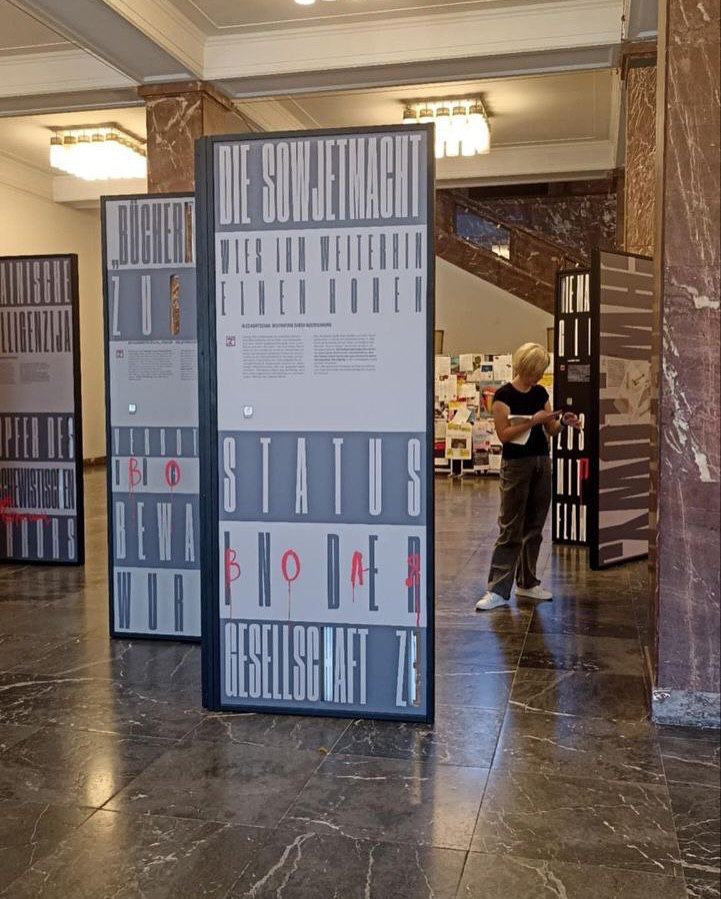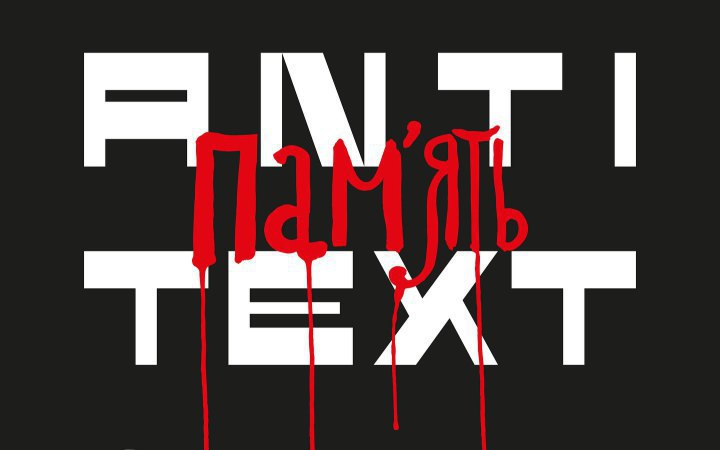On 20 May 2025, the Kharkiv Literary Museum opened a graphic exhibition, Antitext, at the Humboldt University in Berlin.
The Kharkiv Literary Museum announced this on its Facebook page.
Ambassador of Ukraine Oleksii Makeiev and President of Humboldt-Universität zu Berlin Julia von Blumenthal opened the exhibition of the Kharkiv Literary Museum – Kharkiv LitMuseum – Antitext, which addresses the destruction of the Ukrainian elite through repression of its cultural heroes and literary texts. “The Soviet Union, and now its successor Russia, has not stopped trying to destroy Ukraine and its culture. But the artists have not left Kharkiv and continue to create at gunpoint,” said the Ukrainian ambassador, who also invited the university to study Ukraine in depth by joining the Global Coalition of Ukrainian Studies.

The exhibition tells the story of the mechanisms used to destroy a community through repression of its cultural heroes and literary texts. In the twentieth century, the USSR, under the strict censorship of the totalitarian regime, devised many ways to exert pressure on Ukrainian artists and cultural institutions, aiming to reduce Ukrainian culture to a provincial status, secondary to Russian culture.
Today, this topic resonates anew in the context of Russia’s current aggression against Ukraine. Under constant shelling, the Kharkiv Literary Museum evacuated the most valuable part of its collection – books, documents and manuscripts banned by Soviet censorship. That is why Antitext is fundamentally without exhibits – Ukrainian museums are hiding their collections, which are once again under threat of destruction.
Just a few years ago, a German audience would have needed an explanation as to where Kharkiv is. Today, this city of one million people, located 40 kilometres from the Russian border, is known around the world because of the full-scale war.
It might seem unlikely that a city where Russian is the predominant language spoken would resist. However, Kharkiv residents did not let the invaders in, preserved the city’s infrastructure, showed steadfastness and made a clear statement: Kharkiv is a Ukrainian city.
The Antitext exhibition is an attempt to explain why a Russian-speaking city is Ukrainian – and what that means.
The Kharkiv Literary Museum was founded in 1988, during a period of significant change, as the Berlin Wall was falling and it seemed that the evil empire would disappear forever. After Ukraine declared independence in 1991, the museum began collecting literary artefacts banned by Soviet censorship and restoring lost culture – from a Ukrainian perspective.
How does the absence of certain books – the emptiness on the shelves – affect a generation? Perhaps it is this very absence that deprives us of our own voice, our own subjectivity?









